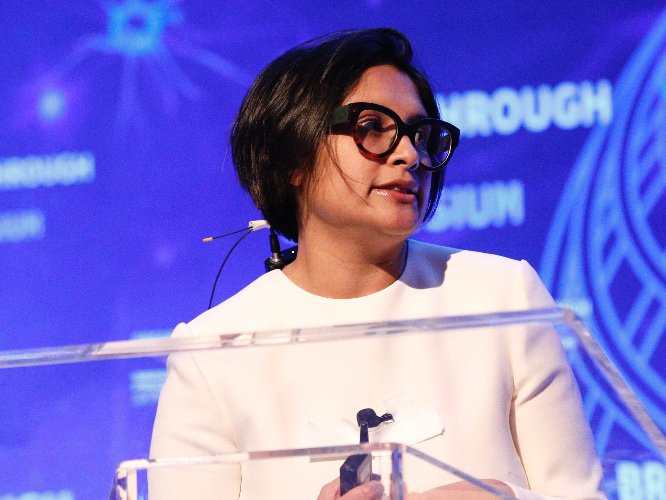News
Samaya Nissanke receives Suffrage Science Award

Physicist Dr Samaya Nissanke of GRAPPA, the University of Amsterdam and Nikhef will receive the prestigious Suffrage Award for outstanding science, science communication and support of women in STEM. Dr Nissanke and eleven other awardees will be honored at an online celebration on Monday 8 March 2021, the tenth anniversary of the scheme. This will be the fifth Suffrage Science awards for the Engineering and Physical Sciences.
Professor Amina Helmi, University of Groningen, who nominated Dr Samaya Nissanke, University of Amsterdam and Nikhef, said: “Samaya is an excellent researcher focusing on a very hot topic in modern Astrophysics, namely on gravitational waves (Nobel Prize 2017) and how they tell us about the merger of pairs of neutron stars and black holes. She was part of the discovery of the first ever binary neutron star merger that was seen by gravitational waves by the international LIGO and Virgo collaboration in 2017. She was in fact part of the writing team for the discovery paper and was responsible for coordinating the follow-up from many different observatories. Not only is she an outstanding scientist, but she is also a fervent and devoted advocate of diversity and inclusion in science, and beyond. She is the chair of Netherlands Astronomy Equity and Inclusion Committee, which she helped set up.”
On International Woman’s Day in 2011, the inaugural cohort of eleven ‘Suffrage Scientists’ from the life sciences were recognised in a ceremony at the Institute of Contemporary Arts, London. Their awards were hand-crafted items of jewellery created by art students from Central Saint Martins-UAL, who worked with scientists to design pieces inspired by research and by the Suffragette movement. But rather than produce a new set of pieces for the next awards, each holder chose who they would like to pass their award onto, thus generating an extensive ‘family tree’ of incredible scientists and communicators.
Suffrage Science pioneer Professor Fisher said: “We dreamed up the awards scheme to celebrate the contribution that women have made to science, which often gets overlooked. This is as important now as it was ten years ago. This year’s awardees join a community of over 148 women scientists. I’m thrilled that since 2011, the awards have travelled from the UK, across Europe to the USA, Hong Kong, Iran and to Ghana, illustrating the international nature of science and engineering, and the global effort to improve the representation of women in STEM.”